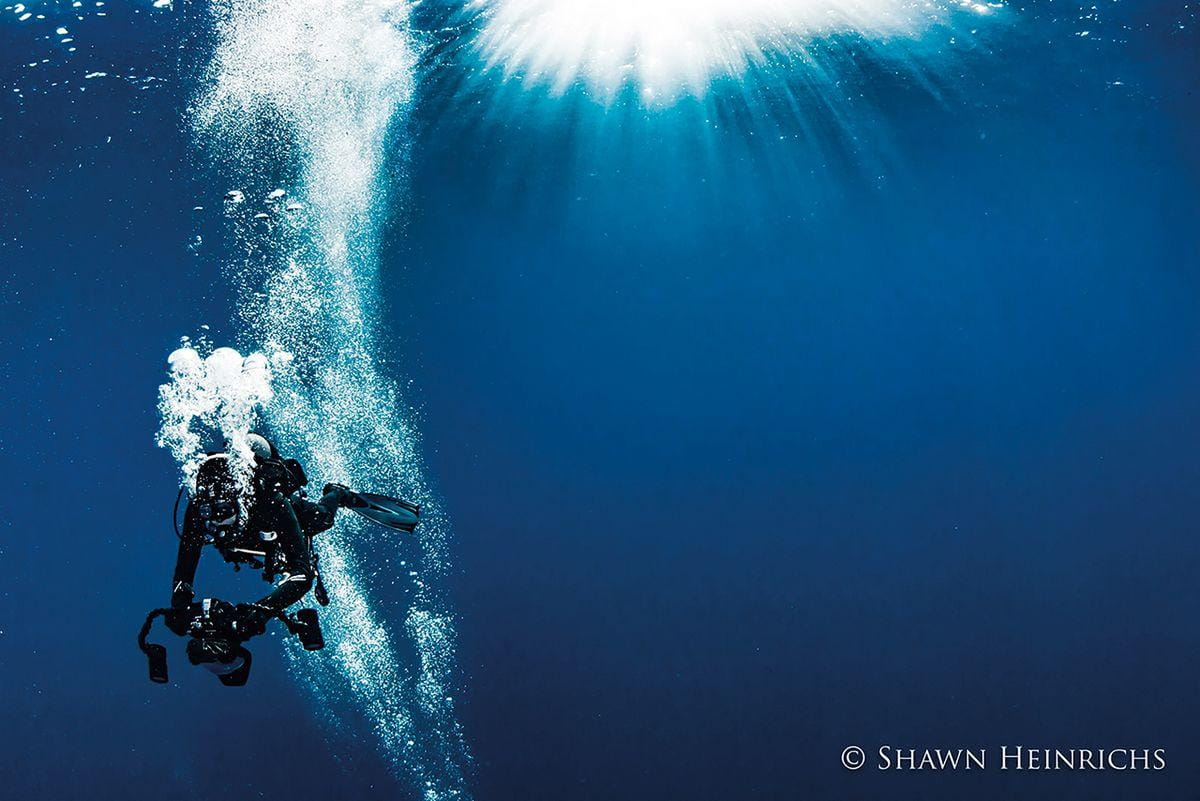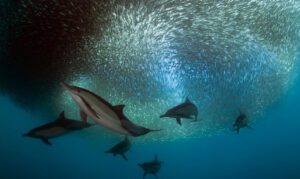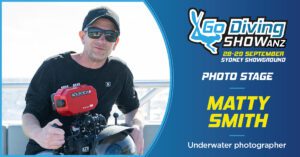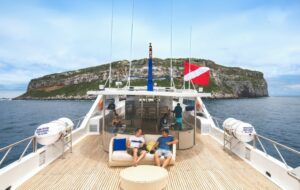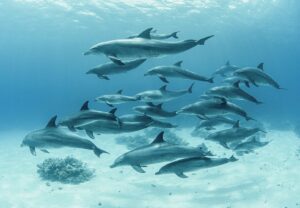Photographs courtesy of David Diley
Q: You are best known for Of Shark And Man. How did the concept of this film come into existence in the first place?
A: Originally it was intended to be a chapter in a book I wanted to write. I had no film-making experience at the time, despite always wanting to be a film-maker one day. I figured I’d start by writing a book, then use it as a launch pad to start making documentaries, and this particular chapter always stood out to me as being a story which would make a great film. I was already in the process of trying to raise the finance to make the book happen when Jim Standing at Fourth Element said I should just go ahead and go directly into making a film. I thought about it, figured it’s what I had always wanted to do in the first place, so thought ‘why not?!’ I quit my job a few months later with no money or safety net, with the frame of mind being to make the situation so desperate, failure was not an option.
Another key element in the film’s conception was the fact that nobody was making the shark documentaries I wanted to see any more, so I just decided I may as well go and do it myself. It really was that simple. I quit my job with zero film-making experience and one year and ten days later, I was on day one of production in Fiji. I worked so hard at it and wanted it enough that I knew I was going to make it out there, and I ultimately learned how to make films by making an ambitious and quite-complex feature documentary. It’s the best film school you can ever attend – learn by throwing yourself in at the deep end, commit to your vision, have faith in yourself, deliver and exceed expectations. That’s the condensed version of the story – if you want the full story, you’ll need to watch the film!
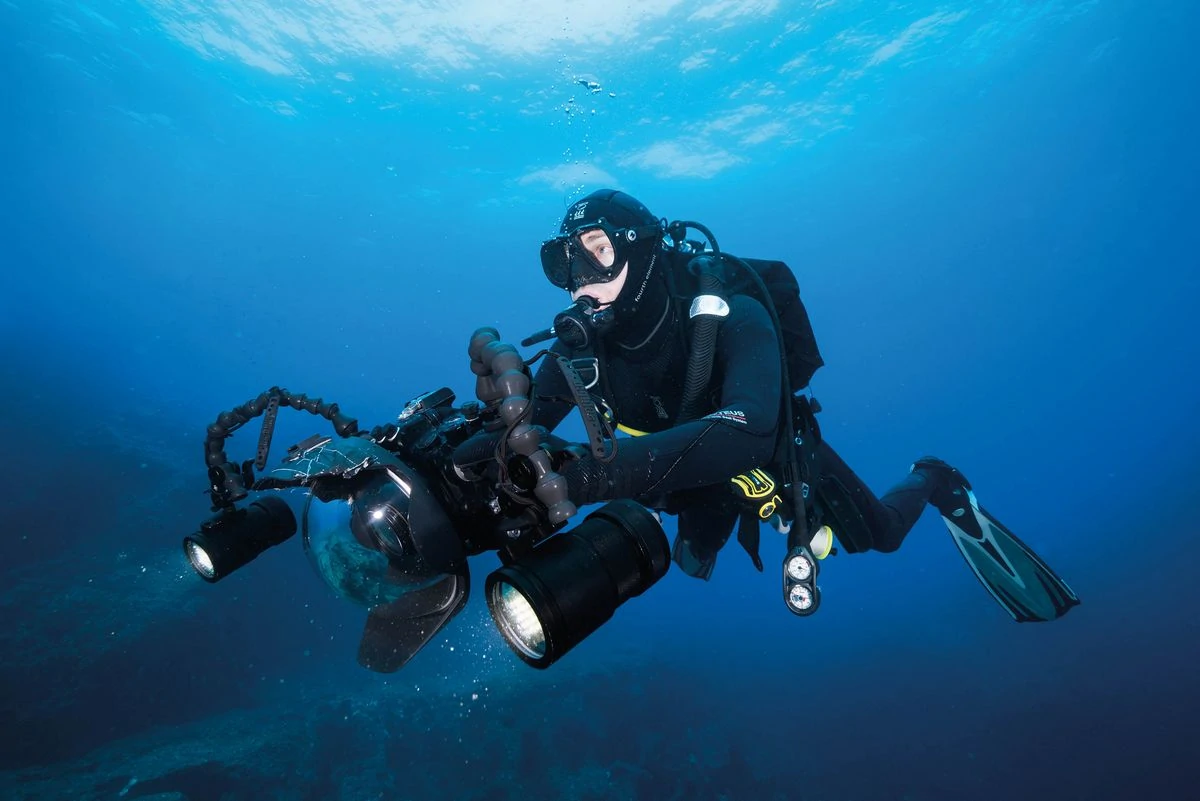
Q: Filming in close proximity to extremely large bull sharks must have been quite daunting at first. How did you get yourself into the right frame of mind to complete these dives?
A: Honestly, not really. It wasn’t my first time around large sharks and I have a good understanding of sharks and shark behaviour, so for me, it was all about excitement. There is nothing in the world I enjoy more than filming big, potentially dangerous sharks as closely as possible, but that’s not an adrenaline thing, it’s more about a sense of fulfilling a childhood dream. I can’t really describe how it makes me feel, I guess I can only really say it’s the closest to that mythical zen-like state of absolute happiness I get, the act of experiencing that privilege just seems to connect with me.
In regards to how I get into the right frame of mind, it’s the same as every other dive. I consider what I’m doing, look at the details – including worst-case scenarios – and act accordingly. I treat every dive as a professional dive and perhaps, because of that, I’ve never had any accidents. I’m quite methodical when it comes to my work, so that when I am in a position to get the footage I want, I can allow that sense of creativity to not be inhibited by bad preparation or practical performance.
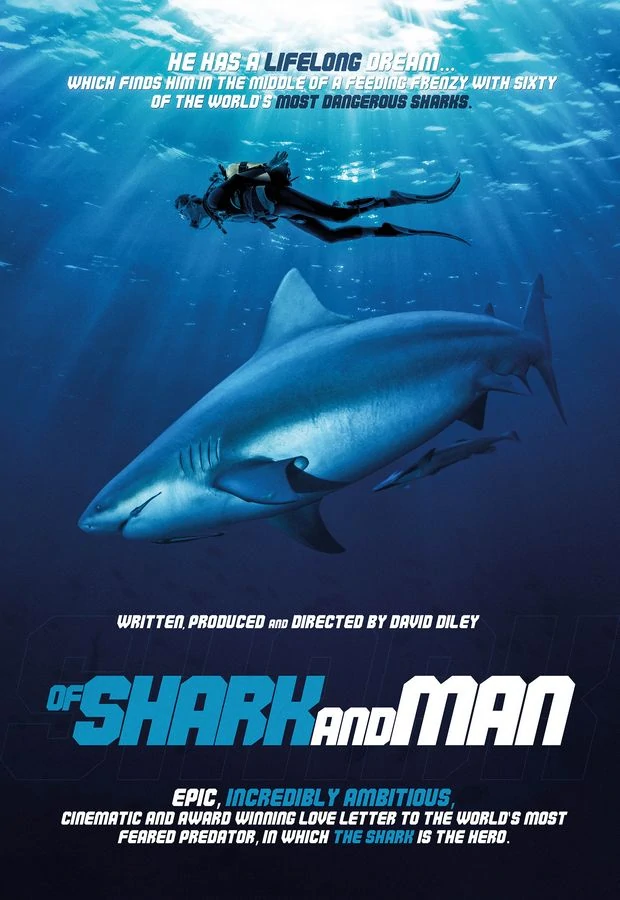
Q: What were the main challenges in getting the film made, and then picked up by distributors?
A: The main challenge was the same as any creative endeavour which you take seriously – money, or rather an abject lack of it. Coming up with good ideas is never easy but when you do, you have to convince someone else to pay for it to happen, unless you’re a millionaire, which unfortunately I’m not. It actually didn’t take that long, just less than ten months, to go from absolute zero to confirmation I was going to Fiji to shoot the film, but that’s because of the hours I put in – 14-16 hour days, every single day, thousands of emails, hundreds of hours of phone calls, travelling up and down the country… I focused my entire life on this one thing and it paid off. Film-making is not a 9-5 job, it’s a ‘do it for as long as it takes or don’t bother’ job and I’m fine with that – and if it means making sacrifices in other areas, then so be it. It’s a privilege to do what I do and when I get opportunities to do more of it, I’m not going to turn them down.
With distribution, that was tough. Before the film screened on the festival circuit I was cold calling and spec emailing sales agents and distributors with no success, but when the film started winning awards I started getting interest. I went to the Nice International Film-maker Festival and came back a week later to five offers for the film. It was a tough slog to get to that point, but again, if you commit and put in the time and effort, the rewards are more likely to come. Only around two percent of independent films get a distribution deal and I believe for documentary, the success rate is even lower, so you really have to do your due diligence and have a good product.
Another challenge is being visible in an oversaturated market. The availability of film-making equipment and opportunities to make low budget independent documentaries makes actually making a film easier than ever, but making a good film is as hard as it’s always been. There’s some good shark films out there right now, but there’s a lot of very bad ones, including within the factual genre. How do you convince the man on the street to pay hard-earned money for yours, especially when you don’t have a marketing team spending thousands a month on promotion? It’s a never-ending challenge, but it’s immensely flattering to know that people are watching the film, they like it and they’re
talking about it.
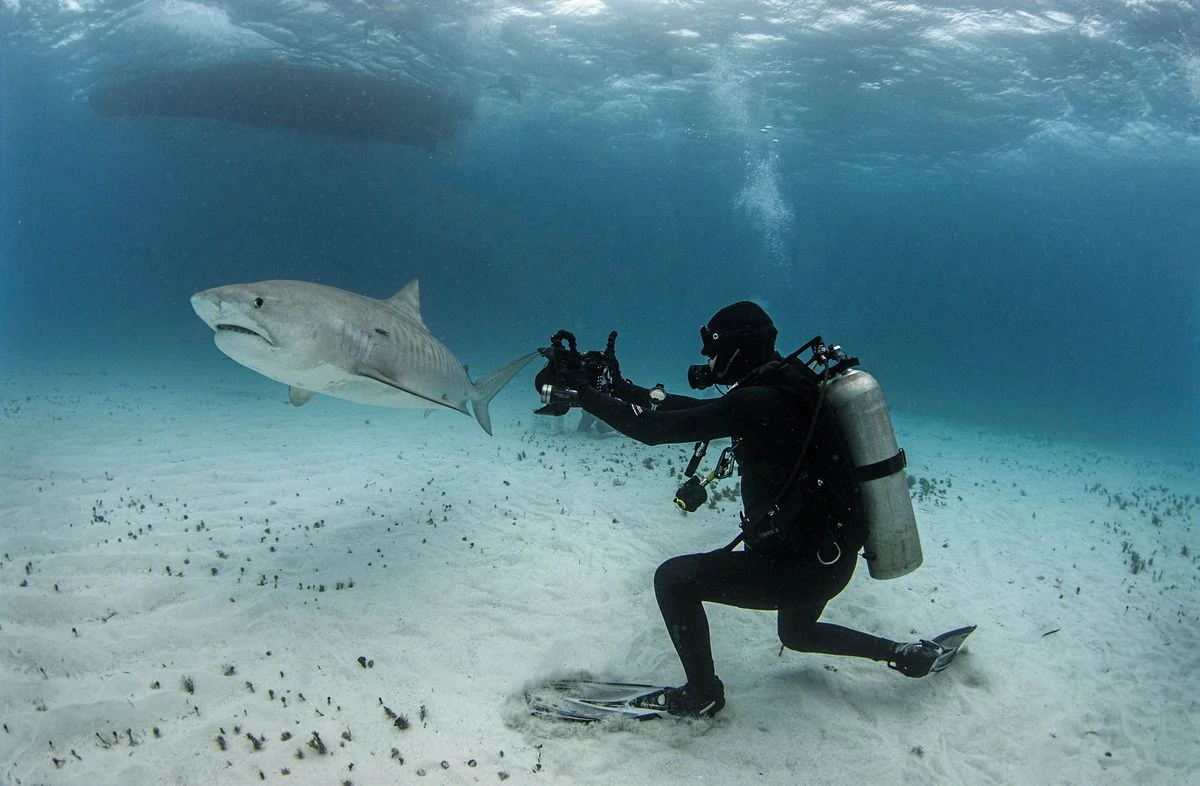
Q: Of Shark And Man got your into the limelight, but let’s go back to the beginning. When did you first get into diving? Were you a diver first, then a film-maker, or the other way around?
A: I was certified in 2007, but before that I did try-dives whenever I could just to learn the basics for when I was finally able to start my journey to becoming a professional diver. I’m a working-class lad and I think one of the biggest issues within the dive industry is that it can be an incredibly expensive sport, which precludes a lot of people from actually pursuing it. When I signed up for my open water course, I told them I was starting the process to become a professional working diver and underwater cinematographer, so I took it extremely seriously.
I still enjoy the process of diving, everything about it, but I see it more now as a way to film what I want to film. I think the last time I did a dive without a camera in my hands was probably ten years ago – I can’t do it, I have to have the capability to film or the dive would feel weird to me!
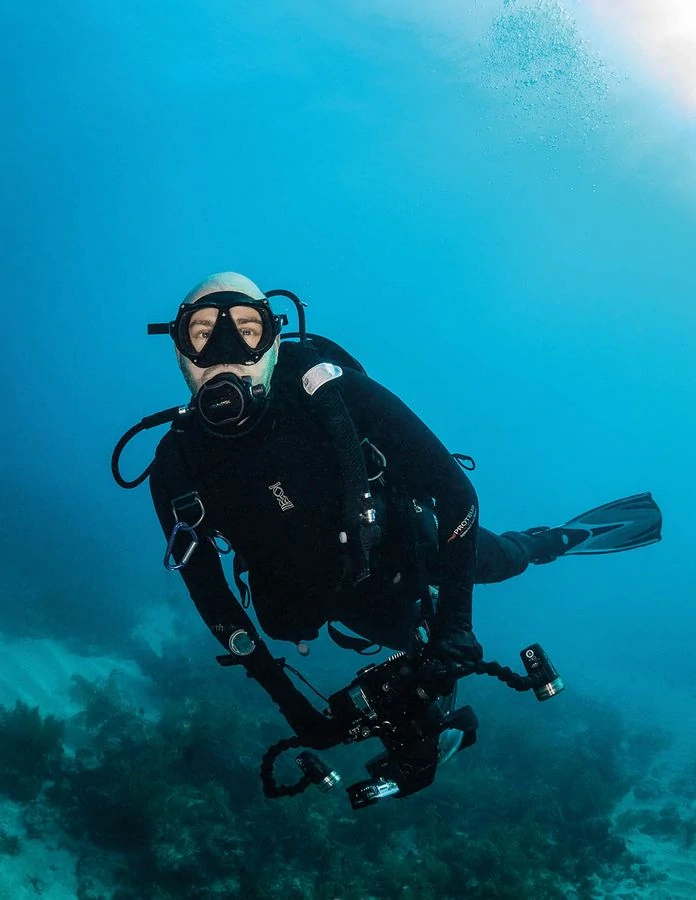
Q: What camera, housing and lighting are you currently using for your projects?
A: If I’m commissioned by a broadcaster or production company, I’ll use whatever camera and housing they want me to use with the caveat that I am able to advise or suggest set-ups to get the best out of the situation and budget. Personally, I’m still using my Canon 7D however, I am hoping to upgrade to be a minimum of 4K RAW capable as soon as possible this year. My housing is a Nauticam and it’s brilliant, absolutely rock solid and I can tell you from personal experience that it is bull shark proof with it having been in a few mouths during my time in Fiji and it’s never let me down once. My lighting set up is two Big Blue 15000P Professional Underwater Video Lights and I love them – hands down the best lights I have ever used. I also have a rear-mounted GoPro for cutaways and I’ve just got my hands on a Paralenz as well, so I’ll no doubt be adding that into my set-up also.
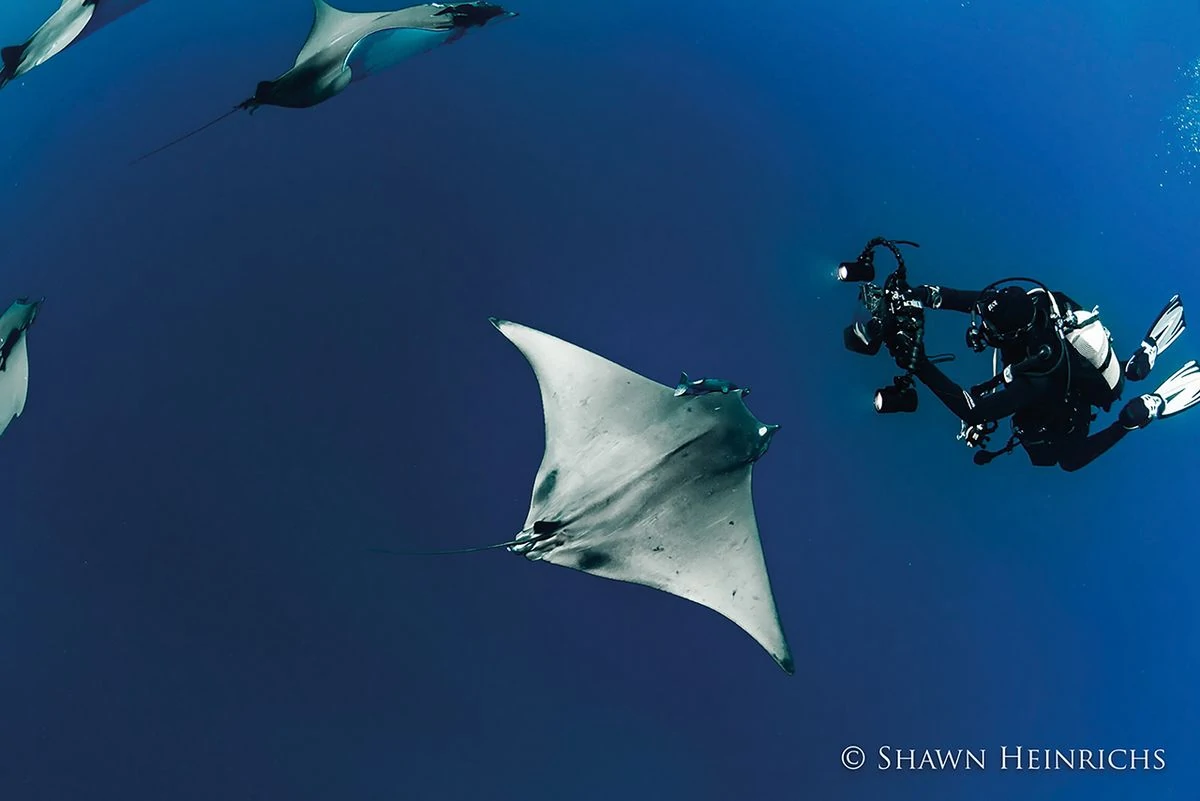
Q: Talking of the future, can you give us the scoop on what the coming months hold for brand David Diley?
A: I’m working on the sequel to Of Shark and Man. This time around I’m approaching the film in a much-more-professional manner – we have the production crew, a much-bigger budget and an incredible story to tell. I am working with my Development Executive to raise the finance and we already have some interest from networks and broadcast channels, so a lot of my time at the moment is spent working on that. I can’t really say much about the film itself other than it’s an incredible story being told by some amazing people, and made by a team of talented, dedicated professionals who it will be a privilege to work with. The idea is to ultimately be in a position where we are making one of these every year until I run out of shark stories to tell!
Aside from the feature documentary, I have a commercial underwater shoot coming up in the Middle East soon, I’m just waiting on the dates to be finalised and I’m in Egypt in the southern Red Sea for three weeks in June filming some promotional material for Red Sea Diving Safari.
I also work as a Digital Colourist so I have some cool projects coming up – short films, commercials, branding videos, you name it! On top of all that I have my next Underwater Film-maker Workshop in Marsa Shagra in mid-November, which is oceanic whitetip season, so I’m really looking forward to that!
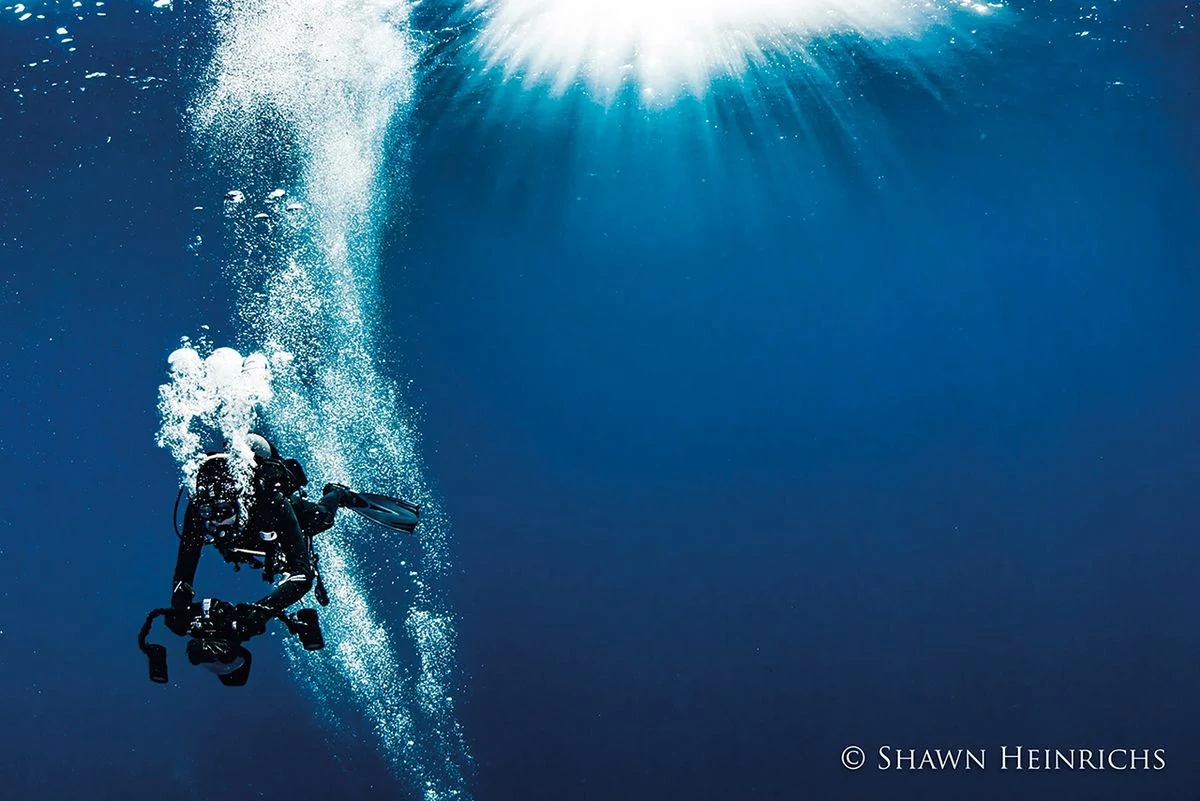
Q: You run workshops aimed at taking raw novices and making them into mini film-makers. What words of advice have you got for any aspiring underwater film-makers out there?
A: Story, story, story. The best camera in the world is the one you have available to you, what is infinitely more important is what’s in front of the camera and who is behind it. Find a different angle to a story and if you give it a personal edge, it will engage viewers and could make them look at the world in a different way. If your viewer is asking questions of themselves or their opinions, you’ve got them in the palm of your hand.
If you get out there and do it and really take it seriously, you might surprise yourself with how good your film turns out and if you can, learn from people with more experience than you but never let anyone convince you not to try things differently. If you want to go down your own path and do things totally differently, try it, it might end up being terrible but you’ll still learn a whole lot along the way. Another underwater cinematographer once told me ‘you can’t be a film buff if you didn’t go to film school’, which is complete nonsense. Take influences from anywhere you can think of, the two main influences on Of Shark and Man are Blue Water, White Death and a documentary about Diego Maradona called Hero! Finally, when you think you’ve finished your film, you probably haven’t. Put the ‘finished cut’ away for at least two weeks, don’t watch it then go back to it and see if you still think it’s the best it can be. More often than not you’ll end up cutting it down until 3am the following morning!
Q: What has been your most-memorable moment when diving/filming?
A: It has to be being alone in among 60 feeding bull sharks close enough to touch, life doesn’t get any better than that! I’m also one of the only people on earth to film an all-black manta ray in the eastern Atlantic, I’ve had oceanic whitetips chasing a manta ray around Elphinstone, I’ve done a drift dive in a raging current in the open ocean with a group of mobula rays in the Azores – there’s been loads but the bull sharks will take some beating.
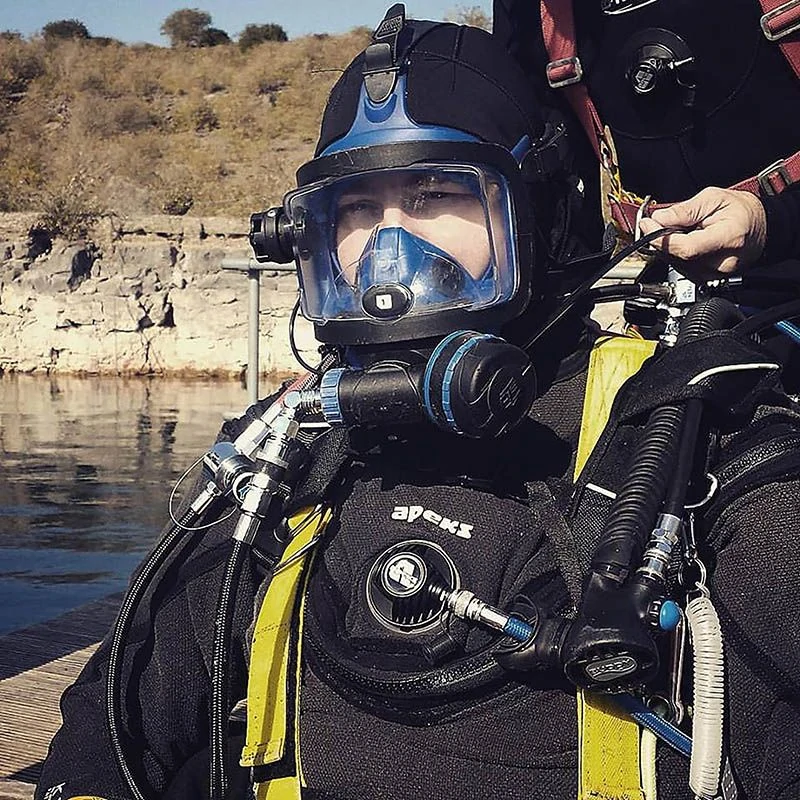
Q: On the flipside, what has been your worst moment when diving/filming?
A: Thankfully there’s only one I can really think of, when on a filming trip about five miles from shore in rough seas our very small boat was on the verge of sinking. We were joking about it at first, not too concerned but then about 20 minutes later we were in our wetsuits ready for the inevitable impromptu swim, but thankfully, the skipper got the engine working again and we got back to shore as quickly as possible. There’s no doubt in my mind that if we had gone over, six people would have gone in the water but there’s no way all of us would have made it back.
Beats working in an office though – the worst day on this job is infinitely better than the best day in a job you hate, so I’ll take sinking boats over sales targets any day of the week!
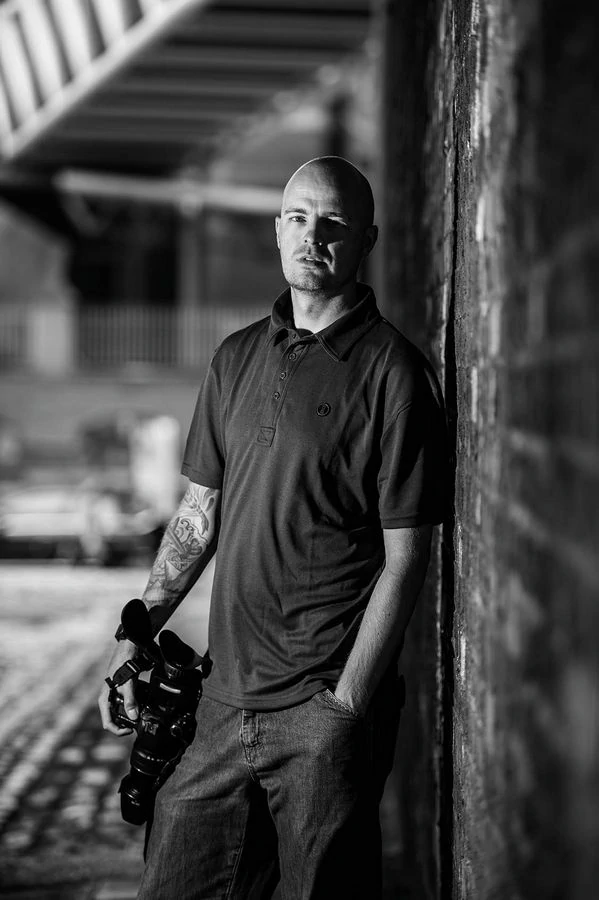
David recently filmed a number of short videos for Scuba Diver magazine in Aqaba. If you haven't seen them yet you can catch up here.
